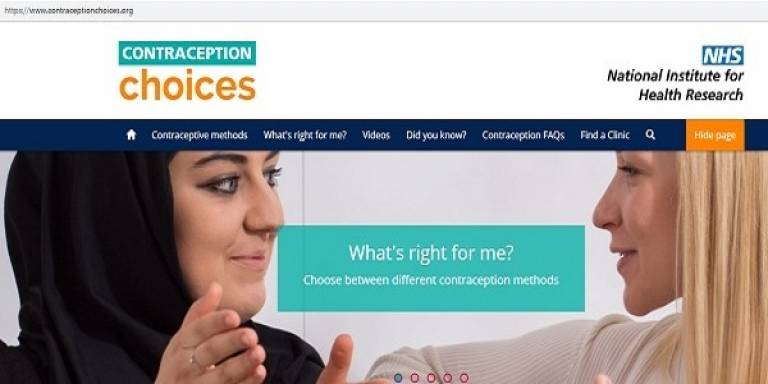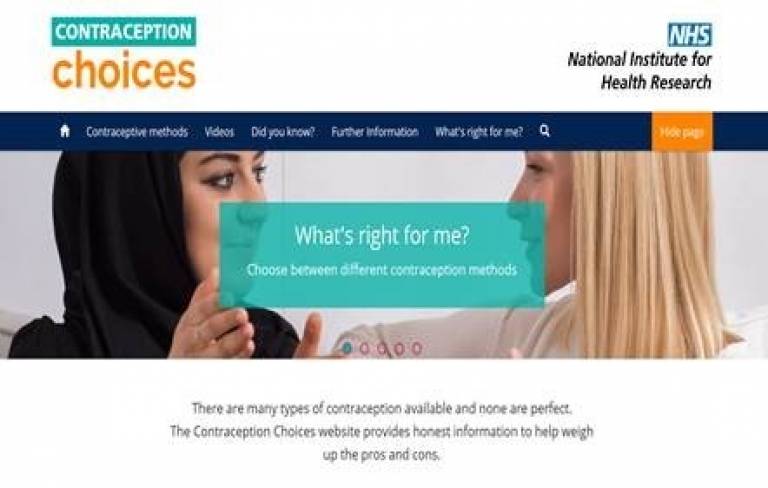
The health and economic benefits of contraception worldwide are remarkable, including a 44% reduction in maternal deaths (averting over 260,000 deaths per year globally) and a 10% reduction in childhood deaths (by lengthening the interval between successive births). Economic evaluation shows that every £1 spent on contraception saves £11-£29. Yet over 200 million women who wish to avoid pregnancy do not have access to contraception.
Our Work
- Contraception Choices
Contraception Choices is an interactive website that offers tailored advice to aid informed choice of contraception. We co-developed the website with young women, contraception providers and a software design company to aid women’s informed choice of contraception.
Contraception Choices provides information about contraception; videos of women and health professionals discussing contraceptive experiences, concerns and misperceptions; an infographic representing contraception effectiveness; and an interactive decision tool What’s right for me? The types of contraception most consistent with a user’s preferences are displayed and can be exported to the user by email or text message.
Evaluation of the website showed that it was highly popular with women and contraception providers for its design, trustworthy information, and decision aids. It also helped women to discuss contraception with others, including health professionals.
We also carried out a randomised controlled trial of the website with over 900 women recruited from SRH services, General Practice, an abortion service, maternity service and community pharmacy. Women in the intervention group were randomised to access the website and all women were followed up at 6 months. The website was not associated with significant differences between intervention and control groups in the type of contraception used or satisfaction with contraceptive method. The trial was funded by the National Institute for Health Research and was led by Prof Stephenson with Dr Bailey, Dr Blandford, Ana Gubijev and Vas James.
For more information please see the main findings published in Digital Health and the NIHR Journals library webpage.
- Priority Setting Partnership in Contraceptive Care
- There are not enough resources to study every research question that we might be curious about. So how do some questions get picked for research while others do not? Who decides?
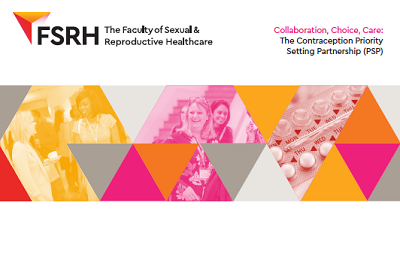
Professor Stephenson led the Priority Setting Partnership in Contraceptive Care, a group of contraceptive service users, members of the public and frontline clinicians who came together to work collaboratively to determine what the top 10 priority questions for contraceptive research are. She said “This Priority Setting Partnership represents the first systematic approach to discover, from the people most directly involved in contraceptive care, which questions the research community should investigate on their behalf."
You can find out what the top 10 priorities were and read more here.
- Completed Projects
Adolescent Sexual and Reproductive Health in Sierra Leone
Dr Nataliya Brima and Dr Jennifer Hall were involved in two UCL funded projects to investigate the knowledge, acceptability and accessibility of contraceptive methods and pregnancy intention among adolescents in Western area, Sierra Leone. These projects explored the acceptability and feasibility of adolescent SRH Services in Sierra Leone and with the realities of prevention of teenage pregnancy and reduction of maternal mortality in contemporary Sierra Leone. In collaboration with a local non-governmental organisation and the Western Area District Management Office, we trained and supervised local data collectors who carried out face to face interviews and data collection. 400 adolescents completed the survey. Using this data the Sierra Leone version of the LMUP was validated has been published in the African Journal of Reproductive Health.
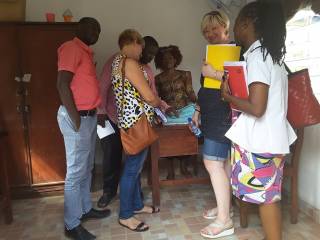
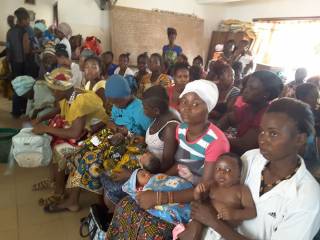
Which is the best regimen for taking the contraceptive pill?
Around 2 million women use combined oral contraception or ‘the pill’ in the UK. When the pill first became available in 1960 it was licensed for standard use which became the norm – taking the pill daily for 21 days, followed by seven pill-free days during which a monthly withdrawal bleed occurs.
Alternative ways of taking the pill, which reduce or eliminate withdrawal bleeding, have slowly gained ground. Such ‘tailored’ regimens tend to be unlicensed by the pill manufacturer but are considered safe, and apply only to monophasic combined oral contraceptives.
Tailored use typically involves taking a pill daily for 9 consecutive weeks followed by a pill free interval of seven days (‘tricyling’) Taking a pill daily until bleeding for at least three consecutive days triggers a pill free interval of 3 or 4 consecutive days.
We did a randomised controlled trial with over 500 women to compare tailored use with standard use to see how many women were still taking the pill one year later and how satisfied they were with their regimen. Most women in the study were already familiar with the standard regimen. Switching to tailored use or continuing with standard use were both associated with high satisfaction with the contraceptive regimen and the bleeding pattern. Tailored use was associated with significantly less bleeding and suited some women particularly well. We concluded that tailored use provides a suitable alternative to standard pill use. Even though national guidance supports tailored regimens, women are not usually counselled about this option even in contraceptive services. We therefore did another study with over 100 women to see how useful and feasible it would be to routinely provide information about different pill regimens in a busy contraception clinic. Nearly all women (98%) felt it was helpful to be informed about different pill regimens in one consultation. Nearly all health professionals (99%) felt confident about giving the extra information without the consultations taking significantly longer.
Even though national guidance supports tailored regimens, women are not usually counselled about this option even in contraceptive services. We therefore did another study with over 100 women to see how useful and feasible it would be to routinely provide information about different pill regimens in a busy contraception clinic. Nearly all women (98%) felt it was helpful to be informed about different pill regimens in one consultation. Nearly all health professionals (99%) felt confident about giving the extra information without the consultations taking significantly longer.
You can read about the tailored pill trial her
PhD - Contraceptive e-health intervention in Botswana

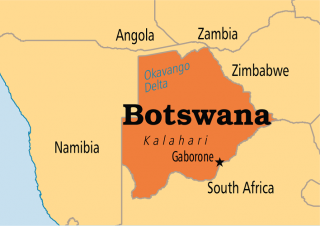
Caitlin Bawn is currently undertaking her PhD to look at how this approach could be adapted to use in Botswana. This work is supervised by Prof. Stephenson, Dr Julia Bailey and Dr Chelsea Morroni.
A digital intervention to improve contraception choice, uptake and effective use in Botswana: acceptability, feasibility, design and content
This project will use a variety of qualitative research methods to determine the need for, and requirements of, a digital intervention to improve contraception choice, uptake and effective use in Botswana. After observing various specialist clinics, we will interview key stakeholders in family planning to understand the current situation around contraception, and eHealth specialists for insight into Botswana’s digital infrastructure. Then, with the support of local researchers, we will interview women and healthcare professionals to hear individual experiences around accessing and providing contraception. We will also run workshops with small groups of women to test which elements of the Contraception Choices website would be both useful and acceptable in Botswana. During all interviews, we will attempt to ascertain the perceived need for this intervention, and what should be included to make it most effective. Using this insight, we will develop a prototype of the intervention and then run workshops to gain feedback on design, content, and usability.
We are extremely grateful to the various organisations who are supporting the project, including the Botswana Family Welfare Association; Botswana UPenn Partnership; Princess Marina Hospital, Infectious Diseases Care Clinic; Botswana Ministry of Health; and the District Health Management Team.






 Close
Close


